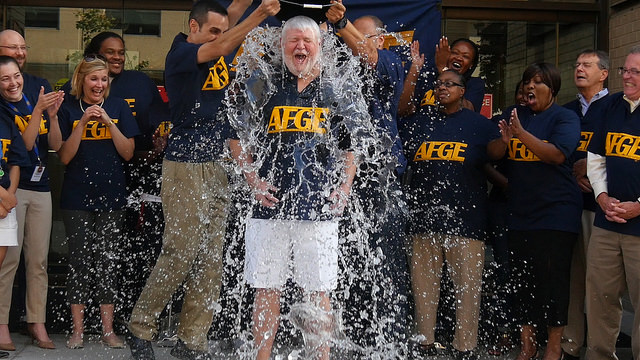This
week, Phispers brings you a short analysis on how FDA might be promoting
European drugmakers over others. There is also news on how India plans to set
up a drug audit office in China to check quality of APIs coming from there.
Besides, there is news on lawsuits against J&J, a report on drug spends in
the US and updates on new drug trials and approvals.
Does
the FDA promote European manufacturers over others?
Does
the US regulator have more faith on European manufacturers over those based in
India and China? Recent news reports seem to suggest it does.
Thomas Cosgrove, the Director of the Office of Manufacturing Quality (OMQ) within US Food and Drug Administration’s Center for Drug Evaluation and Research (CDER) spoke at the Food and Drug Law Institute's annual conference last week. Cosgrove directs CDER’s compliance activities with respect to current good manufacturing practice (cGMP) and product quality.
In
the coverage provided by RAPS, Cosgrove detailed some of the biggest challenges drugmakers face when contracting with foreign manufacturers. “If any firm in the supply chain falls down, the supply chain itself can fall down. This is a very real risk," Cosgrove said, noting that the agency can reject applications for drugs over good manufacturing practice (GMP) issues.
He further said: “You're pretty confident that those European companies you're dealing with have a strong culture of quality and can perform pretty consistently," But, like in other parts of the world, these companies might not have a deep experience with how the US regulations work or even how to deal with the FDA, and may not have been inspected by the agency before, he added.
Cosgrove’s comments come at a time when a compilation by Barbara Unger on FDAZilla.com highlighted that the warning letters issued
due to data-integrity concerns to firms in US and Europe (13 total) were more
than those issued to firms in India (9) and almost equivalent to firms in China
(14).
There
have also been other examples where inspection data highlights a difference in
inspection outcomes for the same facilities. PharmaCompass had recently covered the US and EU’s efforts to utilize each other’s GMP inspections, and how such a dependence maybe problematic.
While
FDA has stepped up its inspections of foreign drug manufacturers in recent
years, there are more than 1,000 foreign drug facilities the agency has never
inspected.
India
to restart inspection of Chinese API manufacturers
India
is cracking the whip on quality and will restart inspecting drug manufacturing facilities in China soon, in order to ensure only quality
active pharmaceutical ingredients (API) are imported from countries like China.
“In the light of the fact that India has faced repeated scrutiny of its manufacturing facilities in the name of quality medicines, the commerce ministry along with other concerned ministries are serious to set up a permanent audit office in China to conduct inspections on a regular basis in China,” G N Singh, Drug Controller General of India, said.
The
plan to set up a drug audit office in China for inspecting manufacturing units
there is not new. It has been in the pipeline for the past three years, as the
project is awaiting approval from several ministries in both India and China.
India’s health ministry is also in the final stages to release a draft guideline towards enhancement of GMP to align India-specific standards with global regulations for better product quality of pharmaceutical products.
The ice-bucket challenge
winner! First new treatment approved by the FDA for ALS in 22 years
Last
week, the US FDA approved Radicava (edaravone)
— a drug to treat patients with the rare amyotrophic lateral sclerosis (ALS), commonly known as Lou Gehrig’s disease.
ALS is a progressive disease that attacks and kills the nerve cells that control voluntary muscles. Eventually, the brain’s ability to start and control voluntary movement is lost, and the patient succumbs to the disease — usually after three to five years from the onset of the symptoms.
Around
12,000-15,000 Americans are said to have ALS. Most people with ALS die from
respiratory failure. British physicist Stephen Hawking is suffering from ALS.
An “ice bucket challenge” conducted in 2014 drew global attention back to ALS. The challenge involved people pouring ice-cold water over each other’s heads, and posting a video on social media, seeking funds for research on the condition.
Edaravone
is an intravenous drug. The drug is being sold in Japan and South Korea by Mitsubishi Tanabe Pharma Corp.
The company is selling the drug at US$ 145,000 per year.
In
the US, the last drug approved to treat this disease was Riluzole in 1995. However, the drug isn’t a cure for ALS, it only delayed the need for a breathing tube. Six months of treatment with edaravone reportedly reduced the rate of functional decline in patients by about a third.
Another
bad week for Teva — its new MS drug fails to meet primary endpoint
Teva’s bad days don’t seem to relent. Last week, it’s late-stage
trial for laquinimod — considered a successor to the aging flagship multiple sclerosis therapy Copaxone — failed the test on the relapsing-remitting form of the disease.
The
drug did not meet the primary endpoint, trying to significantly improve the
time to disability progression compared to placebo after three months.
Teva’s laquinimod was heralded as its brightest pipeline prospect. Investigators are still testing this drug for primary progressive MS and Huntington’s disease. But due to this failure, it’s unlikely that analysts will ascribe much potential value to the drug.
Early last year, Teva (which had partnered with Active
Biotech) was forced to suspend use of
the highest dose of laquinimod due to cardio side effects. Despite this
setback, Teva was hopeful of a win with the lower doses and was preparing for a
launch after completing studies this year.
Trump
administration gets FDA to switch TVs from CNN to Fox News
The
Trump administration is ensuring researchers at FDA view the media of its
choice. This week, CBS News confirmed an email was sent to researchers at the
FDA's Center for Biologics Evaluation and Research to change the channel on
internal television screens from CNN to Fox News.
CNN and Donald Trump have been feuding for several months now. On May 2, CNN had refused to air an advertisement issued on 100 days of Trump administration, that called mainstream media “fake news” — a term frequently used by the president.
The email from “[White Oak] Digital Display” sent on Wednesday, May 3, was sent to inform the researchers of the “reason for the change from CNN to Fox". White Oak is the name of the FDA’s campus.
The email informs employees that the decision came from the Trump administration. “The reason for the change is that a decision from the current administration, administrative officials has requested that all monitors, under our control, on the White Oak Campus, display FOX news,” the email reads.
People
are paying less for drugs, says IMS
Quintiles report
While there
is widespread outrage in the US over soaring drug prices, a new study by
QuintilesIMS Institute shows people are, on an average, actually paying less for their medications than they did a
few years ago.
QuintilesIMS Institute is a research organization that specializes in
healthcare analysis. The report is independent, and did not receive
industry funding.
While drug prices are on the rise with net prices rising 3.5 percent last year, patients’ out-of-pocket costs for medicines have declined — from US$ 32 per name-brand prescription in 2013 to US$ 28 today, the study said.
“The outlook for medicine spending through 2020 is for mid-single digit growth driven by further clusters of innovative treatments, offset by a rising impact from brands facing generic or biosimilar competition,” says a QuintilesIMS report titled ‘Medicines Use and Spending in the U.S. – A Review of 2015 and Outlook to 2020’.
However, this isn’t the only report that shows this counterintuitive pattern of declining out-of-pocket costs. A Peterson-Kaiser Health System Tracker report last year found a slight decline in patients' personal spending on prescriptions, even as the overall costs increased.
Mixed
week for J&J, as it loses talc verdict and wins Xarelto case
Last week was a mixed week for Johnson & Johnson (J&J). On the one hand, the St. Louis jury
ordered Johnson & Johnson to pay US$ 110 million to Lois Slemp, a lady who claimed several decades of using talc products caused her ovarian cancer that later spread to her liver. On
the other hand, J&J won a bellwether case last week over the alleged risks
of its blockbuster drug, Xarelto.
The Slemp trial lasted several weeks and had Slemp’s attorneys call upon scientists to testify studies documenting a link between ovarian cancer and talc use.
Slemp’s attorneys also presented documents showing that J&J knew about the risks. J&J, however, said it will appeal against the verdict.
A company spokesperson said a previous victory (for J&J) in St. Louis and two in New Jersey “highlight the lack of credible scientific evidence behind plaintiffs’ allegations."
In the other case, a US court (the federal jury
in New Orleans) cleared Bayer AG and J&J of liability in the first trial emanating from thousands of lawsuits that blamed
injuries on the blood thinner Xarelto.
“The jury's verdict affirms both the safety and efficacy of Xarelto, and that its FDA-approved label contains accurate, science-based information on the benefits and risks of this life-saving medicine,” Bayer said in a statement.
Rivaroxaban's total 2016 sales were $ 5.392 billion.
Impressions: 3209
This
week Phispers brings you scandals such as that of fake vaccines in Indonesia,
studies and analyses on drug prices and VC investments in biotech firms,
scrutiny on clinical trials done in India, new initiatives such the one
undertaken by the FDA on cancer, regulatory action, court cases and other
interesting pharma industry news from across the world. Did
the FDA commissioner receive payments from GSK and AstraZeneca?A database of
pharmaceutical company payments to physicians updated by the US Centers for
Medicare & Medicaid Services (CMS), includes the name of the current US Food and
Drug Administration (FDA) Commissioner Robert Califf. “The database says Califf received five payments from GlaxoSmithKline for travel, lodging, food and
beverages, as well as a more than US $ 5,000 consulting fee from AstraZeneca in 2015. In 2014, when he was not working for the FDA, Califf received almost US $ 32,000 from companies and in 2013, he received more than US $ 28,000.” An FDA
spokesperson said Commissioner Califf has filed a dispute with CMS in regard to
the reported data. The news comes at
a time when awareness on pharma companies and their dealings with doctors is on
the rise. In the UK, the NHS has warned that drugs firms should stop
paying doctors and health service officials who refuse to be named in a new
transparency register. In Ireland, doctors and other healthcare professionals were paid €6.8 million by pharmaceutical companies last year. J&J
to pay US $ 70 million to family of boy who developed breastsLast week, a jury in America awarded US $ 70 million to the family
of a boy who developed
breasts after taking Johnson
& Johnson (J&J) unit Janssen Pharmaceuticals' antipsychotic drug Risperdal. The
jury found that the company failed to warn the boy's healthcare providers about
the risk of gynecomastia, which is breast growth in men or boys caused by a
hormonal imbalance. According to a copy of the verdict, the company intentionally
falsified, destroyed or concealed evidence in the case. Johnson & Johnson
and Janssen are facing more than 12,000 claims over Risperdal, according to J&J's
most recent quarterly report. Warning
letters for Chinese factories; two Indian firms on import alert It was a busy week for the US FDA as it issued warning letters to three facilities in China – Shanghai
Desano Pharmaceutical, Chongqing
Lummy Pharmaceutical and Guangzhou Haishi Biological Technology. The laboratory personnel at Desano were found conducting “unofficial” testing to an order that the FDA inspectors concluded that “the volume of data in these auxiliary ‘test folders’ suggests that performing unofficial analyses is a common practice at your facility.” Chongqing Lummy which had been placed on the FDA’s import alert list earlier this year had investigators finding analysts
manipulating results for multiple batches of API distributed to
the US. Guangzhou Haishi, which unlike Desano and Lummy, produces finished
formulations for the United States had investigators unveiling that the company
released finished batches of drug products without complete testing. And despite
the violations
uncovered, Haishi’s quality unit released multiple batches of drug products for distribution.While warning letters were being issued to companies based in China, two Indian companies – Harika
Drugs and Silverline Chemicals – which refused FDA inspections were placed on the import alert list. As all the news of compliance troubles was accumulating, Strides
Shasun successfully
passed an FDA inspection in India; while regulators in the United States
and Europe discussed ways on increasing
collaboration to reduce the inspection load. VCs
continue to invest in American biotech startupsWhile 2015 proved to be the biggest year on record for venture
investing in American biotech firms, this year could be equally big.
In 2015, a total of US $ 7.7 billion flowed into a range of startups. These
were largely clustered in Boston/Cambridge and San Francisco. This year, the
IPO window for drug developers has dropped considerably, but the VC money seems
to be flowing into the biotech space at the same pace as last year. Millions
of Indonesian children to be revaccinated due to fake vaccine scandal Fake
vaccines, that have been distributed across Indonesia since 2003, will have the
Indonesian government reinoculate children aged 10 and under. While it is not clear how many
children will receive their jabs again, it is estimated that the number runs in
millions. The
Indonesian police have arrested 15 suspects and seized
hundreds of bogus vaccines, including substances that passed off as vaccines
for polio and hepatitis B. The
fake-vaccine manufacturing and distribution rackets uncovered in Indonesia follows
a similar public-health outcry that occurred in
China a few months back. Scrutiny
on clinical trials performed in India continues Last week, two regulators -- Medicines and Healthcare products Regulatory Agency (MHRA) and European Medicines Agency (EMA) – took action pertaining to clinical trials conducted in India. The MHRA
suspended marketing approval for a widely used antibiotic – erythromycin – that had won clearance based on clinical trials conducted by India's Quest Life Sciences, due to concerns over the integrity of trial data. The MHRA's decision bars the sale of a generic version of
erythromycin that is being sold in the UK by Dawa Ltd, a Kenyan drug maker. The
EMA, on the other hand, has recommended the suspension of drug Riluzole
Alkem, for which studies were conducted at the Alkem
Laboratories site in Taloja (Maharashtra). Advertising Standards Authority bans Reckitt Benckiser’s painkiller ad There are strict rules that govern the advertising for pharmaceuticals
and Reckitt
Benckiser recently found out that there can be a blowback if you astray
from the rules. The company was selling
targeted painkillers for different ailments: period pain, migraines and
headaches. The Advertising Standards Authority (ASA) banned an advertisement for Nurofen Joint and Back because, despite
appearances, the pills in the range have no specific targeting powers. AstraZeneca
and Genzyme were recently shamed in advertisements for separate breaches of the Association of the British Pharmaceutical Industry's (ABPI) Code of Practice. AstraZeneca apparently breached three clauses of the Code by producing a leave piece which provided misleading instructions on how to use the EMIS Web clinical system – which allows healthcare professionals to record, share and use vital information.Similarly, Genzyme breached the Code when it made a presentation about Fabrazyme (agalsidase beta) to an expert advisory group, that the PMCPA (Prescriptions Medicines Code of Practice Authority) says was “misleading, inconsistent with the Fabrazyme SPC and disparaging of a competitor product.” New
age antibiotics, a golden opportunity for Big PharmaAfter decades of ignoring the antibiotics business due to scant
rewards, Big Pharma is back to developing new
antibiotics. Research incentives from governments are spurring drug makers to
renew efforts to fight antimicrobial resistance and replenish the arsenal of
infection-fighting drugs. Giants such as Roche Holding and Merck are stepping
up their efforts. Several startups are seeking partners to help market new
products.“Some large pharmaceutical companies are re-entering the space, and new companies focused on antibacterial development are emerging as industry darlings,” said Ankit Mahadevia, chief executive officer of Spero Therapeutics LLC, a biopharmaceutical company in Massachusetts that’s developing novel treatments for bacterial infections. An
analysis that decodes drug price hikes, discounts and inflationA Bloomberg
analysis of 39 medicines sold in the US with global sales of more than US
$ 1 billion per annum revealed that 30 of them logged price increases of more
than double the rate of inflation from 2009 to 2015, even after estimated
discounts were factored in. Only six drugs had price increases in line with or
below inflation. The analysis is based on discount estimates from SSR Health, an
investment research firm that compared estimates of gross sales for each drug,
based on prescription data, to company-reported US net sales. According to the
analysis, discounts vary according to the disease type and competition. For
instance, the price increases in Humalog,
the popular, short-acting insulin made by Eli
Lilly were wiped out by even-bigger discounts. Gilead,
Massachusetts find middle ground on Hepatitis C drugAfter threatening Gilead
Sciences over the cost of its hepatitis C treatments, the commonwealth
of Massachusetts has reached a deal with the drug maker for rebates for some of its residents who are infected with the chronic disease. The cost of hepatitis C drugs for about 2,800 people covered by MassHealth, which is the commonwealth’s Medicaid programme, has so far totaled about US $ 318 million from late 2014 through early 2016. The deal is expected to save the state a significant amount of money. Meanwhile, Gilead Sciences recently raised prices on a pair of older
HIV medications that face patent expiration. This is part of the company’s strategy to encourage patients to switch to newer HIV treatments. However, this sort of pricing strategy is triggering criticism by AIDS activists. FDA
strengthens its cancer initiative Richard Pazdur – who has been with the Food and Drug Administration for 20 years – was recently elevated to a new role. He will be running a new Oncology
Center of Excellence that will coordinate all of the FDA’s clinical efforts in cancer. This oncology centre is part of the American Vice President Joseph Biden’s US $ 1 billion National Cancer Moonshort effort. At the FDA, Pazdur was evaluating new cancer drugs.Cancer medicines now account for 40 percent of the drugs under development. According to the FDA commissioner, Robert Califf, a few years ago, pharma companies were worried that their drug pipelines had run dry. Now, they are filing drug applications at a dizzying pace. Add to that, he says, new technologies like DNA sequencing and 3D printing, and there is an “avalanche” of new products coming. “We have to be prepared for this,” Califf says.
Impressions: 3173















